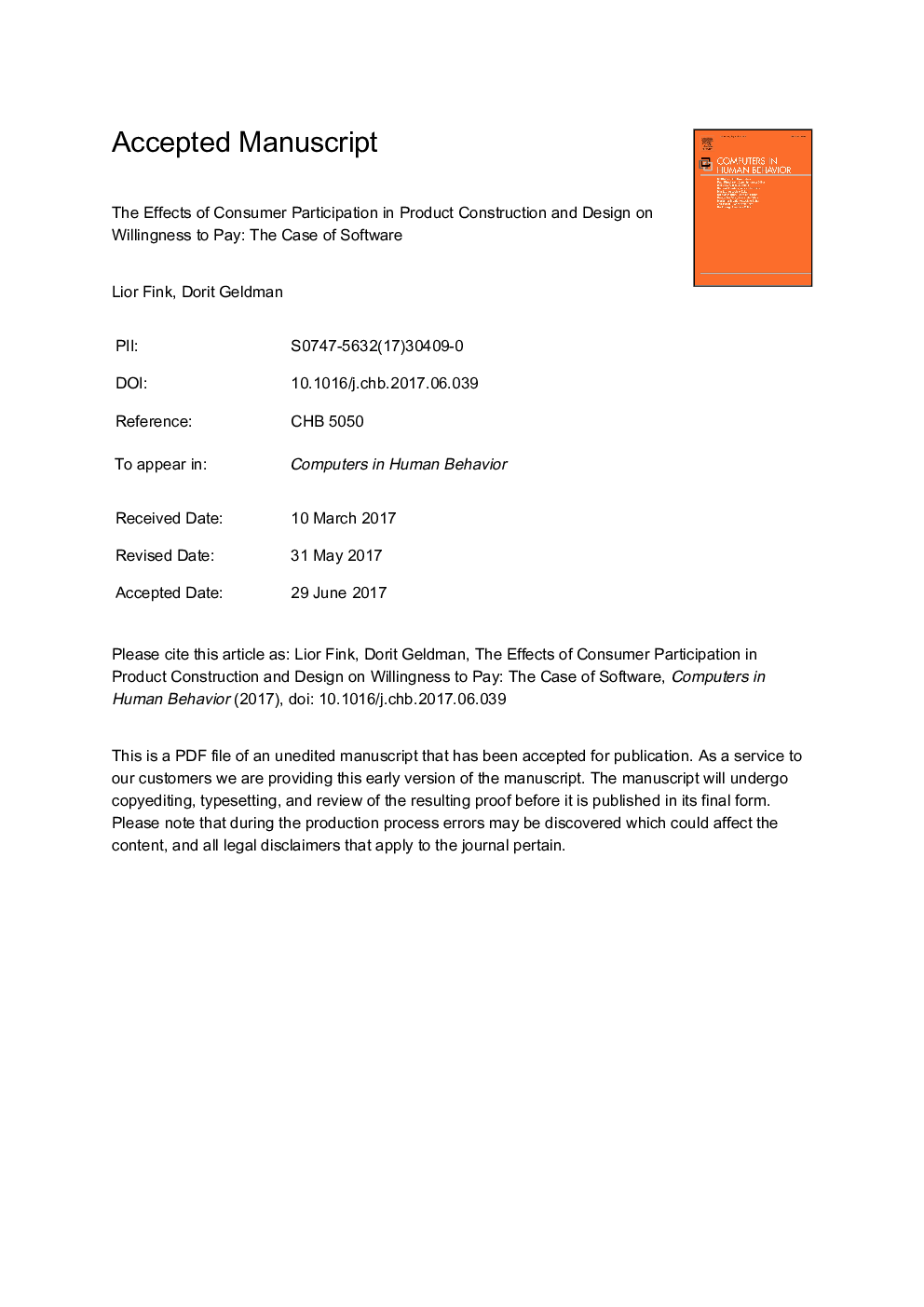| Article ID | Journal | Published Year | Pages | File Type |
|---|---|---|---|---|
| 4937557 | Computers in Human Behavior | 2017 | 34 Pages |
Abstract
It has been repeatedly observed that people come to value the product of their efforts and that asking consumers to work on a product leads to higher willingness to pay (WTP) for it. Recent studies have shown that subjective value is more positively affected by self-design (participation in product customization) than by self-construction (participation in product assembly) because consumers express choice only in the former. These effects are presumed to be universal, although they have been consistently demonstrated with physical products. We argue that software products are different: they are experience (rather than search) goods, they are susceptible (rather than insusceptible) to network externalities, and they are intangible (rather than physical) goods. On the basis of these differences, we hypothesize that self-design is more detrimental than self-construction to subjective value in the case of software. This hypothesis is tested by developing four versions of a dedicated mobile application (app), corresponding to a factorial design of 2Â ÃÂ 2 for self-construction (yes/no) and self-design (yes/no) of the app prior to its use. The results of this experiment show that WTP is negatively affected by self-design but unaffected by self-construction. These findings, which cannot be attributed to behavioral tendencies, sunk cost, process-related feelings, or product qualities, support the notion that software goods are different from other consumer goods.
Related Topics
Physical Sciences and Engineering
Computer Science
Computer Science Applications
Authors
Lior Fink, Dorit Geldman,
